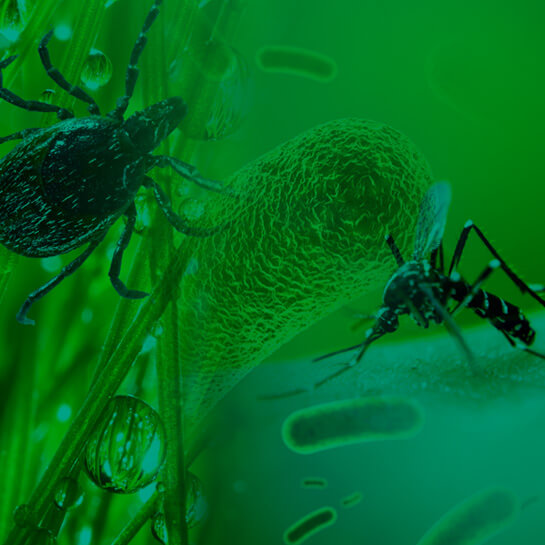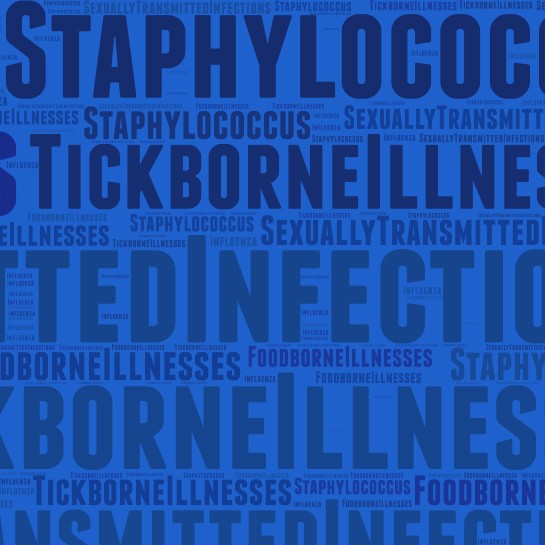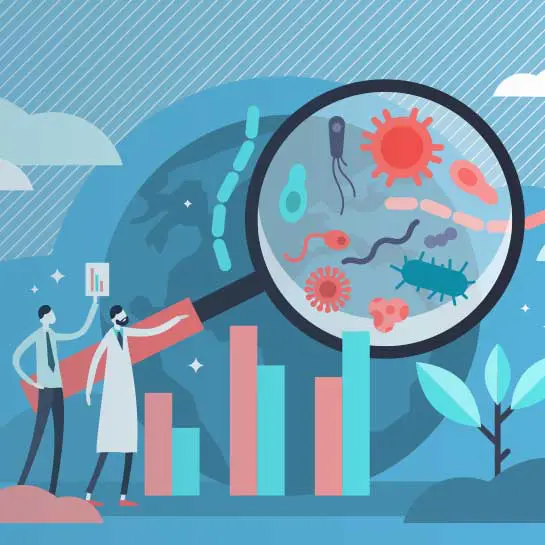Malaria, Malaria Symptoms, Treatments & Prevention
What is malaria?
- Malaria is caused by parasites that enter the human body through the bite of an infected mosquito. Malaria is potentially life-threatening, but it is preventable and curable if diagnosed and treated promptly.
- It is most common in tropical and subtropical regions like Africa and Asia. The World Health Organization (WHO) reports that worldwide there were an estimated 263 million malaria cases in 2023, with 597,000 fatalities. In the United States about 2,000 cases are reported each year.
- Common early malaria symptoms are high fever, headache and chills. If not treated quickly severe symptoms can develop such as organ failure, mental confusion and seizures.
- Only a healthcare provider can diagnose malaria through a blood test. We use prescription antimalaria drugs to treat the disease.
- Antiviral medications – specific to the country being visited and taken before, during, or after a trip – can prevent a traveler from contracting malaria. Avoiding mosquito bites is another effective way of preventing the disease.
What causes malaria?
The disease is caused by bites from the Anopheles type of mosquito that transmit Plasmodium parasites into the person’s body. Transmission occurs in these steps:
- An uninfected mosquito bites a person with malaria and becomes infected.
- The infected mosquito bites another person, transferring the parasite.
- Parasites travel to the liver, mature and then infect red blood cells.
- Infected red blood cells circulate, causing symptoms.
Five species of Plasmodium parasites cause malaria in humans, with two species posing the greatest threat: Plasmodium falciparum and Plasmodium vivax. In the U.S. most cases are from the P. falciparum parasite, which causes the most severe form of the disease.
Aside from the parasite-driven infection, people can get malaria from blood transfusions, organ transplants and sharing infected syringes. In rare cases, malaria can be transmitted from a mother to her baby via the parasite crossing from her into the placenta and fetus.
It’s important to know that malaria does not spread from person to person. It does not spread from any type of person-to-person exposure or contact, including sexual contact.
Risk factors for malaria
Those who live in or travel to areas where malaria is prevalent are at higher risk of infection. Here are some high-infection areas:
- Africa, where 94% of malaria cases and 95% of deaths occur.
- South and Southeast Asia.
- The Central and South Pacific Islands (Oceania).
- Caribbean areas, particularly Haiti and the Dominican Republic.
- South America and Central America.
The following people are at increased risk of serious malaria cases or death:
- Infants and children younger than 5.
- Adults over age 65.
- Pregnant women.
- People with HIV or AIDS.
- Those with weakened immune systems.
Related reading: ID Care travel care
U.S. malaria facts
The Centers for Disease Control and Prevention tracks malaria in the U.S.
- Most people with the disease report recently travelling to Africa.
- About 95% of those with the disease say they did not take any preventive measures.
- An average of seven people in the U.S. die each year from malaria.
- Malaria was considered to be eliminated in the U.S. in 1951 but in recent years cases unrelated to travel have been reported in Florida, Texas and Maryland.
- And in August 2025, the New Jersey Department of Health began investigating a case of malaria in Morris County in a resident who had not recently traveled internationally.
Malaria FAQ
What is malaria?
Malaria is a potentially life-threatening infectious disease caused by parasites that typically enter the human body through a mosquito bite. The disease kills about 597,000 worldwide annually.
What causes malaria?
The disease is caused by bites from the Anopheles mosquito that transmit the Plasmodium parasites into the person’s body, causing symptoms.
What are malaria symptoms?
Malaria symptoms can begin with fever, chills, headaches, nausea and others; severe disease symptoms can include seizures, respiratory failure and organ damage.
How is malaria treated?
Antimalarial drugs can treat and cure malaria by killing the parasite. The specific drugs depend on the type of parasite and other regional and personal factors.
Is malaria contagious?
No, malaria is not contagious. It does not spread by any type of personal contact, including sexual contact.
ID Care has more than 50 highly skilled infectious disease physicians, a broad medical support staff of nurse practitioners and physician assistants, and a commitment to patient-centric, empathetic care. Make us your source for excellent infectious disease care.
Malaria symptoms
Cases of the disease are characterized as uncomplicated or severe. Malaria symptoms can range from mild to severe and typically begin within a week to a month after infection. Symptoms depend on the type of parasite causing the infection and the individual’s immunity.
Uncomplicated malaria symptoms
- Fever, chills, cough and sweating.
- Headache, muscle aches and fatigue.
- Nausea, vomiting and diarrhea.
- Abdominal pain.
- Rapid breathing or heart rate.
If not treated quickly, the infection can become severe and heighten symptoms.
Sever malaria symptoms
- Fluid in the lungs and respiratory failure.
- Seizures.
- Organ injury.
- Jaundice (yellowing of the skin and eyes).
- Anemia.
- Circulatory collapse.
- Impaired consciousness.
Sometimes malaria can come back even after treatment, causing symptoms years after the initial disease.
Fast malaria treatment is vital
Symptoms can be mistaken for flu or other illnesses. Those who have a fever or other symptoms and have traveled to a malaria-prone area should see a healthcare provider.
It is very important that malaria be treated as soon as possible to prevent it from becoming severe. The disease should be addressed as a medical emergency.
Malaria testing and diagnosis
The provider will discuss symptoms and travel the patient may have taken to malaria-prone locations in the previous year. In order to verify a malaria diagnosis, a blood test will be given to identify one of the parasites in the blood that can cause the disease.
Treatment with antimalarial drugs
Prescription medications known as antimalarial drugs can treat and cure malaria by killing the parasite. The specific drug depends on the type of parasite, drug resistance in the region where infection occurred, and severity of symptoms. Other patient factors such as age, weight and pregnancy status also play a role.
Antimalarial drugs include:
- Chloroquine.
- Artemisinin-based combination therapies (ACTs).
- Atovaquone and proguanil.
- Quinine sulfate (often combined with doxycycline).
- Primaquine.
- Mefloquine.
Treatment usually lasts several days. Drug resistance is a concern in many regions where the infection occurred, so doctors may adjust therapy based on local patterns.
Severe cases may require hospitalization and intravenous medication. Follow-up microscopic testing after treatment may be conducted to make sure the parasite is no longer present.
How to prevent malaria
Preventive steps are most important for those traveling to high-risk areas for the disease. ID Care physicians or another healthcare provider can administer antimalarial drugs appropriate for the destination prior to, during and after travel. Medications are most often pills taken orally.
When in an area where malaria is a concern, WHO recommends the following preventive steps.
- Wear protective clothing.
- Use mosquito repellants with Icaridin, DEET or IR3535, especially after dusk.
- Sleep under a mosquito net and use window and door screens.
- Use insecticidal coils and electric vaporizers.
Malaria vaccine
WHO promotes use of the RTS,S/AS01 malaria vaccine for children living in malaria-endemic regions, particularly those with moderate to high parasitic malarial transmission. The vaccine can significantly reduce malaria among young children and prevent tens of thousands of deaths.
The vaccine is not recommended for children in the U.S.





